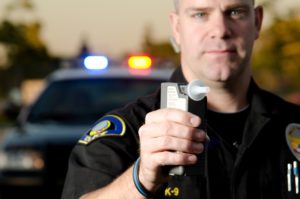Evidence of Impairment for NJ DWI Charges
How do Prosecutors Prove Driving while Intoxicated in New Jersey?
 Alcohol affects everyone differently. Your tolerance, size, weight, and even genetics play a role in how impaired you may be after a few drinks. That is part of the reason that the law in New Jersey has a few of ways that they can test you to determine whether you are impaired. If you are over the age of 21, you may simply have a drink with dinner and then drive. However, if that one drink impairs your ability to operate a motor vehicle safely, then you are violating NJ law. So, how can the police tell if you are impaired? The following explains some of the most common forms of evidence used to establish impairment in a New Jersey DWI case.
Alcohol affects everyone differently. Your tolerance, size, weight, and even genetics play a role in how impaired you may be after a few drinks. That is part of the reason that the law in New Jersey has a few of ways that they can test you to determine whether you are impaired. If you are over the age of 21, you may simply have a drink with dinner and then drive. However, if that one drink impairs your ability to operate a motor vehicle safely, then you are violating NJ law. So, how can the police tell if you are impaired? The following explains some of the most common forms of evidence used to establish impairment in a New Jersey DWI case.
If you have been charged with drunk driving in Frankford, Vernon, Hopatcong, Pohatcong, Allamuchy, Sparta, Phillipsburg, North Warren, or nearby areas, contact our skilled team of New Jersey DUI defense attorneys to discuss your best defense. We regularly defend clients arrested for driving under the influence in Sussex County and Warren County, so let us put our knowledge and experience to work for you. Contact us at 973-755-1695 for a free consultation.
Blood Alcohol Concentration (BAC): How Much Alcohol was in Your System when Arrested for DWI?
Many people are familiar with the concept of BAC, but it is still often misunderstood. The legal limit for blood alcohol concentration in New Jersey is 0.08% BAC. This is the most common legal limit across the country as well. If your BAC is 0.08%, then you have 0.08 grams of ethanol alcohol per 100 millimeters of blood in your system. Getting to a BAC of 0.08 will vary by the individual. For smaller people, you can reach the legal limit in as little as two drinks in an hour. Alcohol also affects womens’ systems differently than mens’, and it takes less alcohol to get to 0.08.BAC is tested through your blood, breath, or urine.
The Alcotest breathalyzer device is used to test BAC in the majority of DWI cases. Breath is perhaps the most common way of testing blood alcohol level, but if there was an accident, the hospital might check your blood rather than having to do a breathalyzer test.
How did You Perform on Field Sobriety Tests?
One misconception about DWI in New Jersey is that your BAC has to be 0.08% in order for you to face these charges. This just is not true. If the police believe that you are driving while impaired by alcohol or drugs, regardless of your BAC, you can still be charged and convicted for DUI. You can have a BAC under 0.08%, or you can be under the influence of another substance. To determine whether you are actually impaired, an officer will likely ask you to go through a series of field sobriety tests.
The National Highway Traffic Safety Administration sponsored several studies, which concluded that there are three tests that will more accurately determine whether someone is actually impaired. When an officer uses all three tests, the results accurately predict whether a driver’s BAC is over the legal limit in over 90 percent of cases. The three tests include the Horizontal Gaze Nystagmus Test, the Walk and Turn Test, and the One Leg Stand. If you do poorly on these tests, you may be considered impaired and could be arrested and charged with a DWI. Fortunately, there are many things that can influence your performance on field sobriety tests, such as a prior injury, that a knowledgeable NJ DWI lawyer can use to fight your case in court.
Facing DWI Charges in Frankford, NJ?
Regardless of how your DWI charges came about, you should consider hiring experienced legal counsel to help you address these charges and fight for the best possible result. Call the local drunk driving defense attorneys at our firm today at 973-755-1695 for more information and a free consultation about your case. A member of our team is available immediately to assist you.











